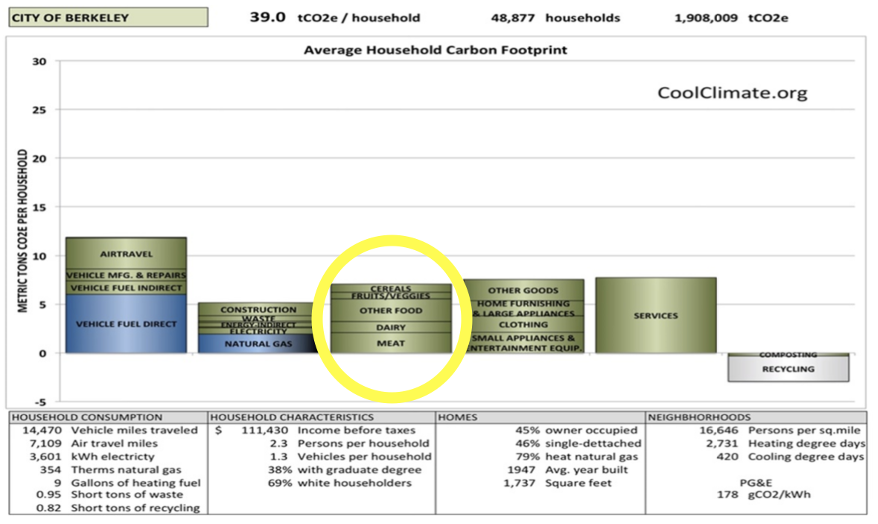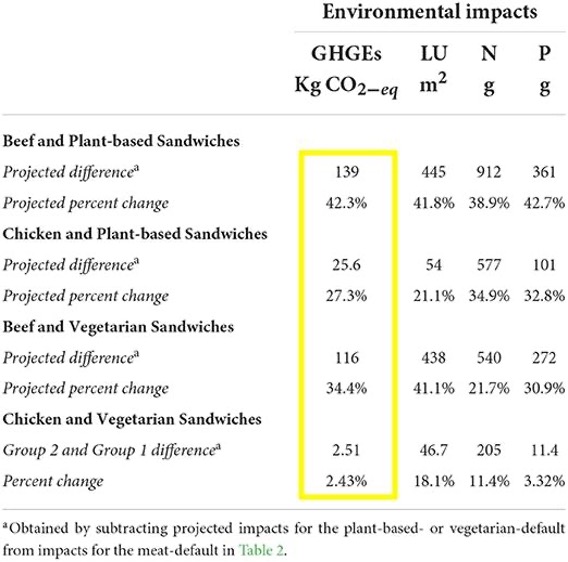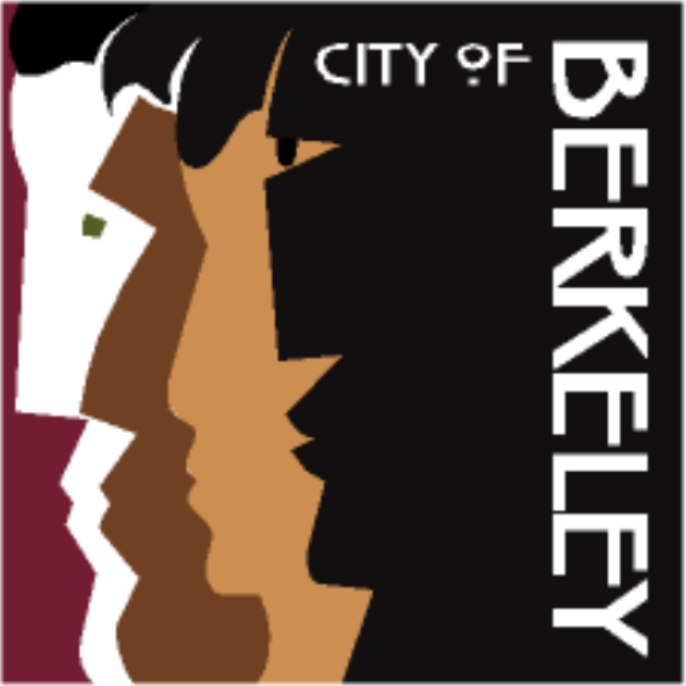
Image by Grooveland Designs from Pixabay
As a councilmember focused on our climate crisis, I am collaborating with Better Food Foundation to help your business or organization evaluate current food procurement practices and develop a plan to meet local, national, and global greenhouse gas (GHG) reduction targets1 through simple strategies, like serving plant-based meals by default.
The Berkeley Plant-Powered Carbon Challenge is a voluntary challenge for private, institutional, and non-profit sectors to become leaders in food sustainability by reducing the GHG emissions associated with their food procurement. The challenge strives for a 35 percent reduction by 2025 by shifting menus away from animal products and toward plants.
This strategy works in any setting where food is served and has been implemented by dozens of leading institutions, such as LinkedIn, Harvard’s Office for Sustainability, and the City of Denver’s climate office. New York City’s public hospital system estimates a 37 percent reduction in its emissions since making meals DefaultVeg. (Bonus: It’s also a surefire way to make meals more inclusive! Everyone can enjoy plant-based meals regardless of ethnicity or religion.) No matter the sector, the setting, or the size of your institution, making animal products opt-in is a powerful but simple way to reduce food-related emissions.
Ready to get started with the challenge? Express your interest here, and the Better Food Foundation will be in touch with resources to help your business or organization transition to DefaultVeg. Together, we can rise to the challenge and help establish Berkeley as a leader in sustainability.2
Background:

Countless cities nationwide—including Berkeley—have adopted Climate Action Plans, vowing to decarbonize their schools, hospitals, homes, and businesses. As seen above, Berkeley’s food sector is its third largest source of GHG emissions, according to a consumption-based GHG inventory. Berkeley’s own plan acknowledges that “sustainable food systems also prioritize … the consumption of vegetables rather than meat,” citing a UN statistic that “globally farm animals generate 18% of GHG emissions (p33).” Meat and dairy consumption is a known, significant contributor to climate change, making it crucial to shift our food system towards plant-based foods. According to a recent academic study that tested this “nudge” theory on college campuses, making plant-based or vegetarian sandwiches the default meal choice (as opposed to meat sandwiches), could avoid 27.3-42.3% in greenhouse gas emissions from related food procurement.

Boronowsky, R., et al. (2022). Plant-based default nudges effectively increase the sustainability of catered meals on college campuses: Three randomized controlled trials. Frontiers in Sustainable Food Systems. 6. 10.3389/fsufs.2022.1001157.
Other cities are already taking action. Washington, DC, enacted the Green Food Purchasing Act. New York City public hospitals serve plant-based meals by default. Locally, UC Berkeley has pledged to transition menus to 50% plant-based by 2027. Now it’s Berkeley’s turn!
In 2021, Berkeley City Council passed a resolution to cut municipal spending on animal products by 50% by 2025—and that’s progress—but it’s the responsibility of all Berkeleyans to help move the community in a greener direction. You don’t have to be on the Council to be a leader or a visionary.
Over 100 participants have taken part in New York City’s Carbon Challenge to great success, including universities, banks, hospitals, real estate firms, and hotels. Twenty-one participants have already met the 30 percent goal, and participants have collectively cut their annual emissions by more than 900,000 metric tons of carbon. Let’s take a bite out of the Big Apple, Berkeleyans, and blow past our 35% GHG emissions reduction goal. The Better Food Foundation is here to help!
- In 2006, Berkeley voters issued a call to action on the climate change challenge by overwhelmingly endorsing ballot Measure G to reduce our entire community’s greenhouse gas emissions by 80% below 2000 levels by 2050. The Berkeley Climate Action Plan was written through a community-wide process and was adopted by City Council on June 2, 2009. On June 12, 2018, City Council adopted a resolution establishing the goal of becoming a Fossil Fuel-Free city. On June 12, 2018, City Council adopted a Climate Emergency Declaration. On May 11, 2021, In 2021, Berkeley City Council adopted a resolution for the Cities Race to Zero Campaign to establish a 2030 emission reduction target that
reflects Berkeley’s fair share of the 50% global reduction in CO2e, committing to
reduce emissions 60.5% from 2018 levels by 2030. ↩︎ - Please note: this voluntary initiative is sponsored and managed by the Better Food Foundation. Participation in this voluntary initiative does not create any express or implied liabilities or obligations on the City of Berkeley and shall not be construed as a waiver of any local law. ↩︎
